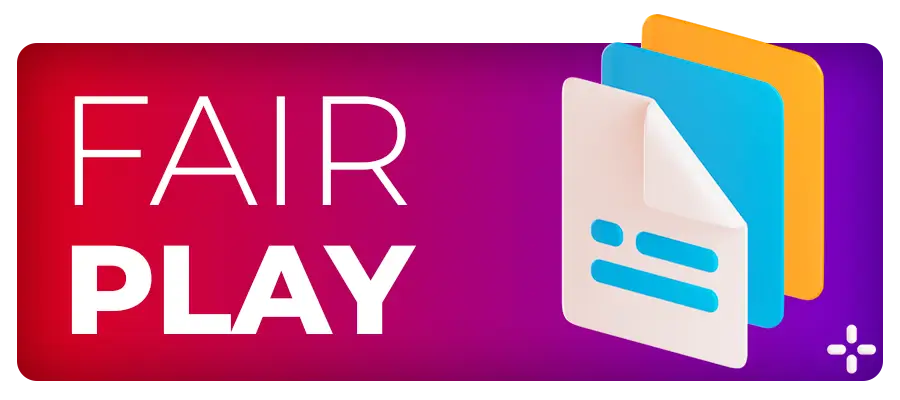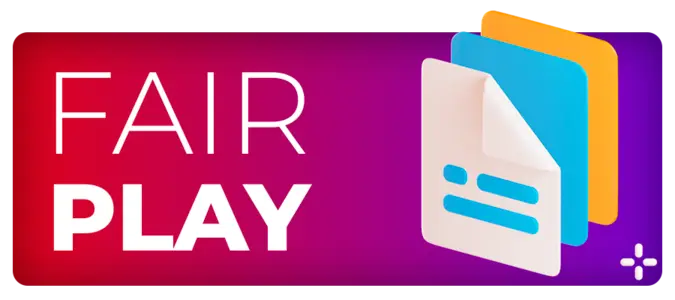
Complaint Process For Online Casino Players
The complaint process in the online casino industry is a structured pathway that allows players to raise concerns, disputes, or grievances about their gaming experience, account management, or promotional fairness. For casino aggregators, promoting partners with a clear and accessible complaints process is essential to building trust with audiences and ensuring a reliable, transparent gaming ecosystem. A well-defined process not only resolves conflicts efficiently but also reassures players that their concerns will be heard and addressed in line with established rules and regulatory frameworks. Without such mechanisms, dissatisfaction can quickly escalate into reputational damage, loss of customer loyalty, and even legal consequences for operators.
In most regulated jurisdictions, the complaint process begins with direct communication between the player and the casino’s customer support team. This first stage is often the most efficient, as many disputes stem from misunderstandings or a lack of clarity in promotional terms and conditions. Players are generally encouraged to submit written documentation, such as chat logs, screenshots, or transaction histories, to support their case. Aggregators can play a valuable role here by educating players on what evidence is most effective in substantiating complaints and by linking to the relevant support channels for each partner casino.
If the initial stage does not resolve the issue, the process escalates to a formal review within the operator’s internal complaints department. This stage is designed to ensure that the matter is examined by personnel independent of the frontline support team, offering a fresh perspective on the dispute. Operators are typically required to provide a written response within a specific timeframe, often set by regulatory bodies. Aggregators can enhance transparency by publishing information about these timelines and the escalation steps available to players, helping them navigate the process with realistic expectations.
A crucial element of the complaints process is adherence to regulatory requirements. Many licensing authorities mandate that operators maintain a documented procedure for handling complaints, outlining each step from initial contact to final resolution. These procedures must be easy for players to find and understand, often displayed prominently in the “Help” or “Responsible Gaming” sections of the casino’s website. Aggregators, acting as guides for players, can assess whether partner casinos meet these standards and highlight those that exceed basic compliance through proactive dispute management.
In cases where the process of complaints within the operator’s framework does not produce a satisfactory outcome, players may escalate the matter to an independent dispute resolution service. These third-party mediators are authorized by regulators to provide impartial assessments, ensuring that both the operator’s and the player’s perspectives are fairly considered. Aggregators can build credibility by directing users toward casinos that actively cooperate with recognized dispute resolution bodies, signaling a commitment to accountability and fair play.
The complaints process is also closely tied to player complaint handling quality. Beyond formal procedures, the tone, transparency, and professionalism of communication can determine how players perceive the resolution experience. Even when the final outcome does not fully align with the player’s expectations, respectful and clear communication often helps preserve goodwill. Aggregators can assess this qualitative aspect by monitoring player feedback and adjusting their recommendations accordingly, ensuring that only brands with strong customer relations remain featured.
Ultimately, the complaint process is not just a mechanism for addressing disputes but a reflection of an operator’s overall commitment to fairness and responsibility. Aggregators that prioritize casinos with robust, accessible, and transparent processes set themselves apart in an industry where trust is a decisive factor in player retention. By understanding and promoting high-quality complaint procedures, they foster an environment where issues are resolved constructively, reinforcing the stability and integrity of the online casino market.
Complaint Process And Dispute Resolution Standards
A well-structured complaint process is the foundation upon which effective dispute resolution standards are built in the online casino sector. The primary goal is to resolve conflicts swiftly, fairly, and transparently, ensuring that both the player and the operator feel heard and respected. From the moment a dispute arises, the process should follow clearly defined steps that align with licensing authority requirements and industry best practices. For aggregators, highlighting casinos that meet these standards serves as both a player service and a measure of brand quality, helping users make informed choices about where to play.
In the first stage of the complaints process, prompt acknowledgment is crucial. Operators should confirm receipt of a complaint within a short timeframe, providing the player with a reference number and an outline of the next steps. This level of transparency sets the tone for the rest of the interaction and reassures players that their concerns are being taken seriously. Aggregators can use these standards as part of their evaluation criteria, ensuring that recommended casinos consistently meet or exceed response time expectations.
When disputes involve complex issues, such as bonus eligibility or game malfunctions, effective player complaint handling requires detailed investigation. Operators must collect and review all relevant data, including server logs, transaction records, and communication history. The findings should then be communicated to the player in clear, jargon-free language. This transparency not only improves the chances of resolving the complaint amicably but also demonstrates the operator’s integrity. Aggregators can promote this transparency by highlighting operators that consistently provide comprehensive explanations in their dispute responses.
Independent mediation is a critical component of many online casino complaint procedures. When an operator and player cannot reach an agreement, an impartial third party can step in to review the evidence and issue a binding or non-binding decision. Many regulators require that operators work with approved Alternative Dispute Resolution (ADR) providers, and players should be informed of this option at the appropriate stage of the process. Aggregators can enhance player awareness by including details about each casino’s ADR partnerships in their reviews and guides.
Regulatory bodies often monitor complaint resolution performance as part of their oversight duties. Metrics such as resolution times, the proportion of complaints upheld, and adherence to published procedures are indicators of a casino’s operational quality. Aggregators that track and publish this data can offer a valuable service to players, enabling them to choose platforms with a proven track record in dispute resolution. This emphasis on measurable standards reinforces trust and positions the aggregator as a reliable industry resource.
The process of complaints also benefits from regular internal review. Operators that periodically audit their complaint handling procedures can identify recurring issues, streamline workflows, and improve training for customer support teams. Aggregators can encourage this practice by recognizing and promoting casinos that demonstrate a commitment to continuous improvement, thereby aligning their brand with proactive industry leaders.
Ultimately, dispute resolution is as much about perception as it is about outcomes. Players who feel respected, informed, and fairly treated are more likely to return even after an unfavorable decision. Aggregators that focus on promoting casinos with exemplary complaint processes and dispute resolution standards contribute to a healthier iGaming ecosystem where fairness and transparency are valued as highly as entertainment.
Complaint Process In Online Casino Complaint Procedure
The complaint process within a formal online casino complaint procedure serves as a critical safeguard for maintaining trust between operators and their players. This procedure is more than just a series of administrative steps; it is a commitment to accountability, fairness, and regulatory compliance. For aggregators, evaluating the robustness of these procedures is essential to ensuring that the casinos they feature are capable of resolving disputes effectively while maintaining player satisfaction.
A well-designed complaint procedure typically begins with a clear, accessible pathway for submission. Players should be able to file their grievances directly through the casino’s website or app, without unnecessary complexity. The process should be prominently displayed and written in plain language, ensuring that users of all backgrounds can understand it. Aggregators can support this accessibility by offering direct links to each partner’s complaint submission page, reducing friction and empowering players to take action when necessary.
Once a complaint is lodged, the operator’s internal process of complaints should be activated. This involves assigning the case to a trained dispute handler who reviews the details, gathers evidence, and contacts relevant departments for input. Timely communication is essential at this stage, keeping the player informed of progress and expected timelines. Aggregators can monitor these interactions by collecting user feedback and adjusting recommendations to reflect the quality of each partner’s complaint handling.
Incorporating dispute resolution into the complaint process adds an additional layer of fairness. Players should be informed from the outset about the possibility of involving external mediators if internal resolution proves unsatisfactory. These mediators, often part of an ADR framework, bring impartiality to the process and ensure that decisions are based on evidence rather than bias. Aggregators can promote this aspect by showcasing casinos with strong ADR relationships, signaling to players that there is always an independent recourse available.
An important consideration in the online casino complaint procedure is the treatment of sensitive information. Disputes often involve personal data, financial records, and other confidential details. Operators must handle this information in compliance with data protection laws, ensuring that privacy is maintained throughout the process. Aggregators can reinforce the importance of data security by highlighting operators with strong compliance records in both gambling and data protection regulations.
Consistency is another hallmark of a high-quality complaints process. Players expect that similar cases will be treated in similar ways, avoiding arbitrary decisions or favoritism. To achieve this, operators must maintain detailed internal policies and provide training to staff involved in dispute resolution. Aggregators can assess consistency by reviewing multiple case outcomes and recognizing brands that demonstrate fairness across all interactions.
Finally, the most effective complaint procedures are those that lead to tangible improvements in the casino’s operations. By analyzing the root causes of disputes, operators can make policy changes, improve user interfaces, or adjust promotional structures to prevent similar issues in the future. Aggregators can leverage this by featuring case studies or success stories from casinos that have used complaints as opportunities for growth, thereby framing the process as a driver of positive change.
In essence, the complaint process within the online casino complaint procedure is not simply a means of resolving disputes; it is a reflection of the operator’s values, professionalism, and respect for the player community. Aggregators that prioritize this criterion in their partner selection contribute to an industry culture where fairness and accountability are as integral as the games themselves, ultimately enhancing trust and loyalty among players.
















